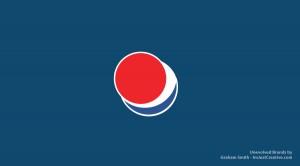In a previous post I wrote about the danger of brands becoming useless if they don’t make themselves useful (the post is in German). I recently came across a study from Havas Media which arrived at a rather scary conclusion: only brands that make consumers’ lives better in one way or another will survive in the future!
 (Bildquelle: Flickr, imjustcreative)
(Bildquelle: Flickr, imjustcreative)
Another sobering fact came out ot the “Meaningful Brand Survey” conducted among 50.000 consumers in 14 markets across the globe: respondents felt that 70% of brands could disappear without them noticing it. Now some of you might say, well that’s not so new: we know that 80% of product innovations are a flop. But the difference here is that we’re talking about brands, and not products, disappearing without a trace.
Havas Media came up with a Meaningful Brand Index (MBI), that ranks the top performing brands when it comes to making a difference in people’s lives. Here is the result:
Top 20 global brands according to Havas Media’s Meaningful Brand Index:
- Ikea
- Nestlé
- Danone
- Leroy Merlin
- Samsung
- Microsoft
- Sony
- Unilever
- Bimbo
- LG
- Philips
- Apple
- P&G
- Mars
- Volkswagen
- L’Oreal
- Wal-Mart
- Carrefour
- Coca-Cola
Simon Sinek in his TED talk shares the same opinion when he says “people don’t buy what you do, rather why you do it”:
I have a lot of sympathy for what Simon says and the results of the Havas Media study, but in times where CMOs have one of the shortest “life expectancies” at board room level (23 months vs. 54 for CEOs according to a Spencer Stuart Study), one would be tempted to ask the following question: shouldn’t “making a difference in people’s lives” also contribute to increasing the value of a brand?
If so, the top scoring brands of the MBI should also be among the most valuable brands. Well, a look at the Top 20 Most Valuable Global Brands according to the 2011 Brand Z ranking from Millward Brown Optimor shows this isn’t the case:
Top 20 Most Valuable Global Brands (BrandZ – Millward Brand Optimor)
- Apple
- IBM
- McDonalds
- Microsoft
- Coca-Cola
- at&t
- Marlboro
- China Mobile
- General Electric
- ICBC
- Vodafone
- Verizon
- Amazon
- Wal-Mart
- Wells Fargo
- UPS
- Hewlett Packard
- Deutsche Telekom
- Visa
Of course you can argue that this comparison is over simplifying the reality and that methodologically the first ranking does not necessarily correlate with the second one. However, intuitively one could argue that the brands that really matter to people should be able to command either a price premium or a higher customer loyalty, and thus be more valuable? Hence, why are only 5 of the most meaningful brands also among the top 20 of the most valuable brands?
Or let me ask the question in a more provocative way: if you were Joseph Tripodi (Chief Marketing and Commercial Officer of the Coca-Cola Company), which ranking would you chose to measure yourself against in the next board discussion?
[...] Währung, welche hier zählt, sind die Markenerlebnisse der [...]